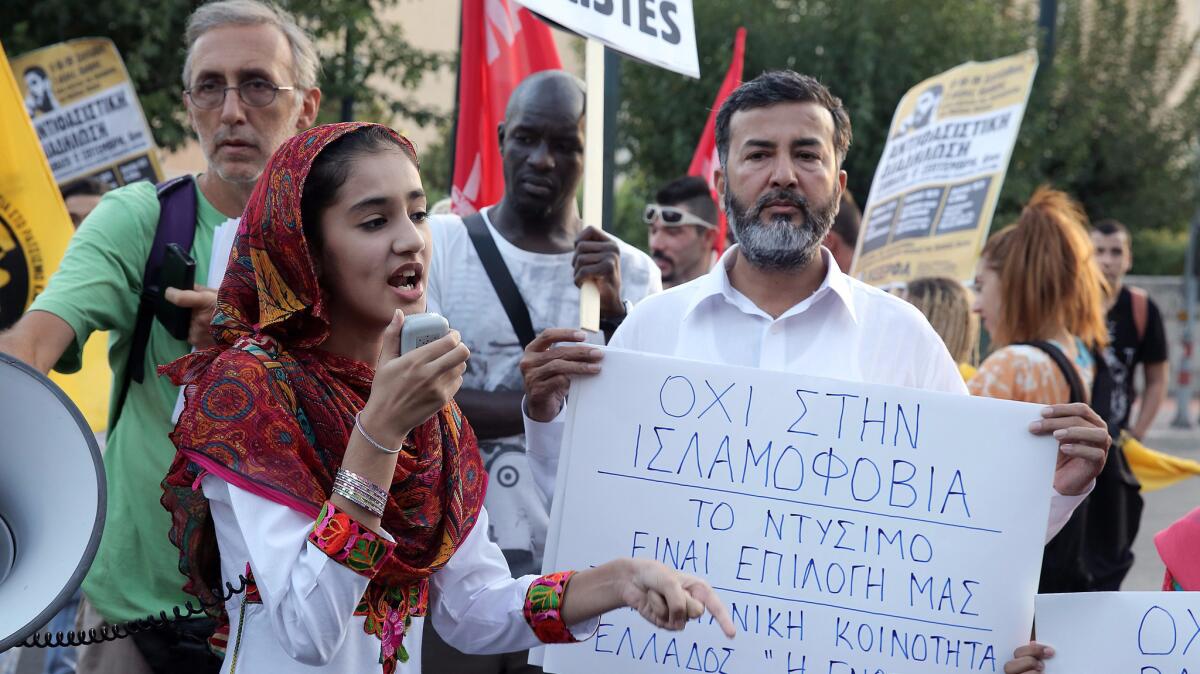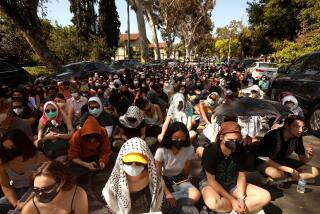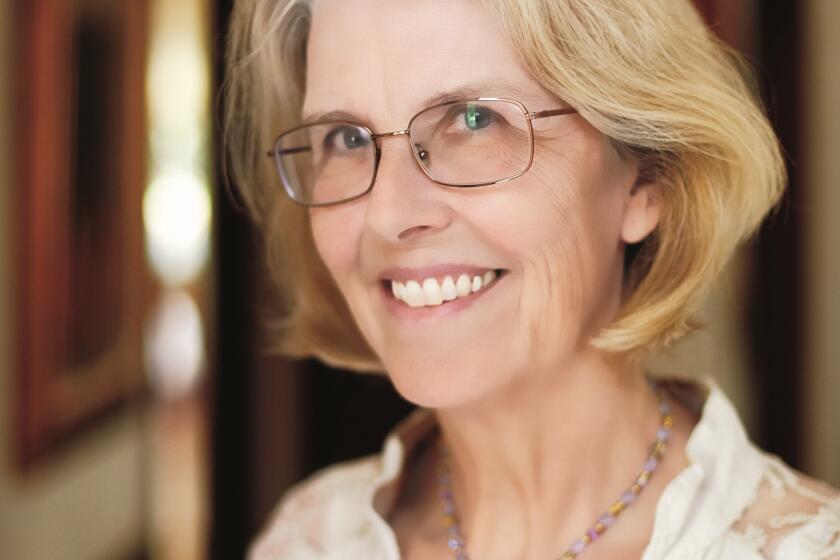Opinion: Is there a compromise between religious freedom and assimilation for Muslim Americans?

To the editor: Shadi Hamid’s thoughtful article on Islamic faith and politics does not attempt to resolve the obvious contradiction he highlights. Hamid says that Muslims’ willingness to struggle for full religious freedom and nondiscrimination in the USA makes them “fully Muslim and fully American.”
(Re “Why Islam isn’t like other faiths,” Opinion, Sept. 11)
But he then goes on to explain that a theocratic state is a premise of the Islamic faith, so that if Muslims were in the majority nobody else would have freedom of religion or from Islamic religion. While focusing on the undoubted sincerity of the Muslim Americans who want freedom to wear religious garb in our society and in Europe, he ignores the theocratic intolerance and morality police of Islamic states.
Thomas Weiss, Woodland Hills
::
To the editor: Hamid wrote an interesting and informative article concerning his Islamic faith, but he seems to miss the point. It’s not that Islam has failed to secularize. It’s that Islam has failed to allow others to secularize.
Conservative Islamic countries seem to have an inability to live in a society that contains non-Muslims. Forced faith is no faith at all.
Michael Harold, West Los Angeles
::
To the editor: At church on Sunday, we discussed how to be more welcoming to Muslims. Afterward, I drove home — glad to live in a “secular” country where I can worship God without fear(and drive because I don’t live in a “religious” country like Saudi Arabia).
Still with warmth in my heart toward Muslims who decide to risk all and come here, I picked up this opinion piece. I could feel my heart growing colder.
I’m not so sure that Islam is “more complicated.” What I regret is when it becomes too simple. Sometimes it seems like thinking is not allowed. As an educated, intellectual Muslim, it is Hamid’s job to make Islam “look better” — show me how one can follow “every single letter and word in the Koran” and keep from the aggression we have come to fear.
Hamid’s parents passionately claim this as “their country,” because they enjoy the fruits of the thoughtful “liberalism” that caused our founders to break away from European theocracies. Christians learned the hard way that a state dictating the religious beliefs of its citizens is unbearable.
So, as Hamid suggests, I will, sadly, call this “a difference” between our faiths.
Lynn Aldrich, Glendale
::
To the editor: Nice try, Hamid! But we’re not buying it. Islam is simply the latest of the three most popular monotheistic religions to come out of the Middle East/Mediterranean area. I don’t think there is anything new or different about it.
Try this: Almost every religion is male-oriented, male-dominated and administered solely by males. “God” is conveniently and erroneously portrayed as a male, making it very easy for males to equate themselves with God, and just as easy and just as erroneous for them to assign to females a position of inferiority.
You are correct, however, that politics and religion are intrinsically entwined — and always have been. Note how cleverly religion/politics have been used through the centuries for power and control over humanity.
Louise Delaney, La Crescenta
::
To the editor: The opinion piece was thought-provoking. If I understood correctly, Islam is inherently incompatible with ongoing religious interpretation and with the separation of church and state, two core values of America. I hope to read scholarly articles from Muslims with differing views.
If Hamid’s article is accurate, then I wonder why do Muslims come to America? Fleeing deplorable situations at home, quality education and economic opportunities are possibilities.
Assimilation, another one of America’s core values, would be abhorrent to the devout. By definition, assimilation is not eliminating one’s heritage, but it does mean layering something new onto what one has. The negation of these values has me deeply concerned.
Carole Spencer, Chula Vista
::
To the editor: The author states, “There’s no contradiction in the term American Muslim.” This is an idea sorely in need of explanation, especially from the Muslim point of view. However, this theme was not really developed — in fact, seemingly, just the opposite.
For example, as he wrote: “To argue for the separation of religion from politics, then, is to argue against the model of the very man Muslims most admire and seek to emulate” as opposed to one of our founding doctrines, namely, the separation of church and state.
Hamid does emphasize that it is “complicated.” Well, yes, it is, but, sorry to say that by the end I was left with more questions than answers.
Nate Tucker, Costa Mesa
::
To the editor: As a 76-year -old, I have been thankful for the immigrants from around the world who have enhanced our culture, creativity, critical thinking and food. I have welcomed Muslims.
Hamid’s article has changed that. His “Star Trek” philosophy explains the hundreds of years of war between the Shiite and Sunni sects. It also explains why the area of the world that presented our real start in mathematics and science is now so backward.
It is the antithesis of what America stands for. To be American, one needs to accept different ideas and beliefs.
Larry Severson, Fountain Valley
Follow the Opinion section on Twitter @latimesopinion and Facebook
More to Read
A cure for the common opinion
Get thought-provoking perspectives with our weekly newsletter.
You may occasionally receive promotional content from the Los Angeles Times.






